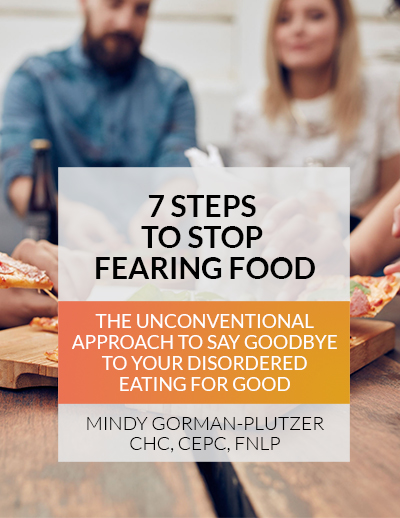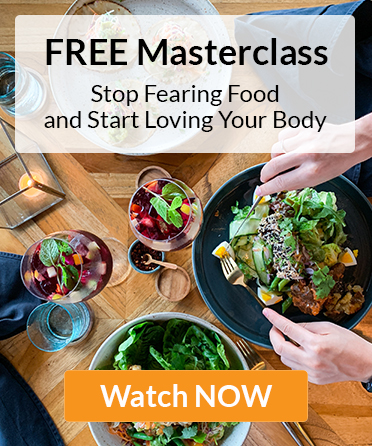And they have NOTHING to do with dieting.
Here’s a suggestion: if you care about health, if you care about nutrition, if you care about good eating, then it’s a good idea to keep asking good questions about food and your relationship with it. Especially today, 1 week into the New Year, and perhaps your soon to have failed you New Year’s resolution to eat less and exercise more.
Asking the right questions about food inevitably points us in a smart direction with what we put into our body. In other words, when we question WHO we are as eaters, we develop a kinder, more empowered relationship with WHAT we eat.
The greatest advances in science, technology, philosophy, art, and culture have so often come because somebody somewhere was asking the right questions.
Questions can be quite powerful.
- Who am I?
- What’s my purpose in this world?
- How can I reach my highest potential?
- How can I contribute?
- What do I need to be complete and happy?
Such questions activate the mind and guide the soul. They’re likely to help us access a greater wisdom.
So in the interest of having a healthier mind, body and nourishing relationship with food, here are 4 powerful and important questions to ask yourself…
- Do I eat in the ideal state of digestion? This is a foundational question that I consider one of the top two questions that anyone could possibly ask in the realm of eating and nutrition. That’s because we could be eating the healthiest food in the universe, but if we’re not eating under the ideal state of digestion and absorption, which happens to be the physiologic relaxation response – then we’re in no way getting the full nutritional value of our meal. If we eat under stress, we’re excreting nutrients, digestion is impaired, hormones such as insulin and cortisol are secreted which can stimulate digestive dysfunction and de-regulate appetite, the function of healthy gut bacteria is impaired, and the list goes on and on. We are physiologically designed, by the brilliance of evolution and a higher wisdom – to be optimal processors of nutrition when we’re in the state of parasympathetic nervous system dominance – a fancy term for relaxation. Ask yourself this powerful question at every meal, and commit to techniques such as deep breathing, slowing down, taking time with food, and calming your mind.
- Am I nutritionally flexible? Being nutritionally flexible means that we’re willing to explore when it comes to food and diet. We live in a time when the nutritional landscape is changing rapidly. We re exposed to stressors, toxins in the environment, poor quality food, and all kinds of assaults on our immune system. It’s a good time to be flexible and experiment. Are you willing to explore different nutritional therapies? Are you open to learning that what is a health food for one of us could be inflammatory for another? Are you willing to try different supplements? If you’ve been a heavy meat eater for all your life, are you willing to go vegetarian for a while? If you’ve been vegetarian for a long time, and your health is suffering, have you considered eating high quality animal foods? Would you consider going gluten-free for a few months? Switching to organic foods? Buying locally produced foods? Have you tried including more healthy fats in your diet? Do you try new foods? Nutritional flexibility gives us the greatest chance for lasting wellness and sustainable recovery from whatever’s challenging us. Plus it can be as much fun as it is empowering.
- Am I in my body? This might be the hardest question to wrap yourself around. A lot of people eat well, exercise, and do good things for their body. However, it doesn’t necessarily mean that we are “in” the body. Another way to say this is that there are a lot of us walking around a bit “checked out” from the body. Such people are disembodied. This is a subtle distinction, but it has profound effects. When we’re checked out of the body, we’re not fully present, we’re not fully sensitive to body wisdom and body feedback, and the mind is always wandering somewhere else and not paying any attention to the thing that the body is doing in the moment. When you exercise, are you focused on your body or are you in your head? When you eat, do you focus at all on the food, or are you living inside your mind that’s chattering away? When you’re touching your loved one, or hugging your kids, are you really feeling them and truly embracing them? Fully embodying your life is a powerful practice and a metabolic game changer. Simply asking yourself, “am I in my body?” throughout the day helps us to embody. And the more we embody, the more empowered we become.
- Do I put love into the equation? Good for you if you focus on good nutrition, good for you if you read up about health and healing, and congratulations for learning as much information as you can about food and eating. What I often see happen with people who have a solid interest in nutrition is they forget vitamin L – love. Love is the missing ingredient in a majority of practices, protocols and nutritional approaches, it’s a missing ingredient in the food industry, and it’s often absent in the offices of practitioners who help us with food and body. No matter what you eat, what kind of nutritional philosophy you adhere to, or what foods you think are the right ones for everyone to eat – if there’s no love in the equation, then our nutritional strategies are deficient. This is a great homework assignment for you: get creative about all the ways you can add more love into your relationship with food and you’ll discover a more loving relationship with life.






Thank you for mentioning how being nutritionally flexible means making changes to your diet in order to stay healthy. Ever since my wife started working at her new job, she has noticed that she becomes especially fatigued once she returns home every night, and I’m worried that she may not be getting enough nutrition since she only eats toast for breakfast. She should find a nutritionist that can help ensure that her body has the energy it needs to work each day.
Toby,
thank you for your comments. Yes, fatigue could be a sign of nutritional deficiencies. I agree that she should get some support if she’s unable to plan proper meals for herself.
I wish you both the best and blessings of good health.